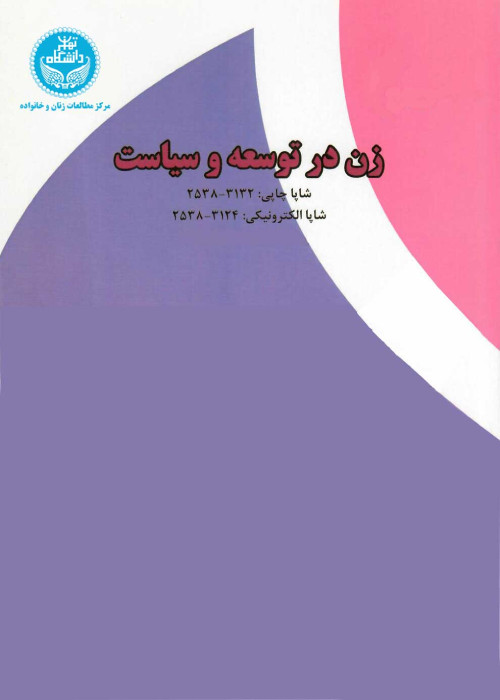Gender Socialization in Iranian textbooks (Case study: Primary Schools)
Author(s):
Abstract:
Focusing on 'gender socialization theory' (Richardson 1977, Evans and Davis 2000, Taylor 2003), this article examines the representation of gender issues in school textbooks. Generally speaking, gender socialization is a long and continuing process and associated with a number of main factors and institutions such as family, peers, schools and mass media over an individual’s life-span. It, however, has been well documented that gender socialization is mainly formed in the childhood and school-ages (Gooden and Gooden 2001). This means that schools and textbooks, as the first agents and the most influential tools for formal education and transition of social expectations and cultural standards (Taylor 2003), play a key role in shaping and developing gender identity of children. The literature reviewed in this article emphasizes on three key points. First, the absence of 'gender fairness', as termed by Whiteley (1996), tends to be prevalent in many counties throughout the world. This also means that although gender bias is a more crucial issue in developing countries, it also applies to some extent to developed countries (e.g. Weitzman et al 1972, Blount 1990, Crabb and Bielawski 1994, Yaqubi 1376, Afshani et al. 1388). Second, lack of gender fairness is not limited to school textbooks because it has also been observed in the educational materials of universities as well as high-level academic journals and text-books (e.g. Elder et al. 1988, Watkins 1993, Sugar et al. 2002). Third, despite the significant achievements towards 'gender fairnes's in more recent years, various types of gender bias are still significantly portrayed in the school textbooks and other educational resources (e.g. Kortenhaus and Demarest 1993, Evans and Davis 2000, Anderson and Hamilton 2005). Using content analysis method, this study focuses on Iranian primary school textbooks (from Year 1 to Year 5) in the educational year 2009-2010. Generally speaking, the results illustrate that both names and pictures of males are markedly more prevalent than those of females. Such gender bias has also been observed in the prevalence of key words related to males and females (such as man and woman, boy and girl), patterns and characteristics of work outside and inside the home, the composition of family size in terms of the gender of children, and sport activities. More importantly, the results illustrate the fact that such gender biases are often associated significantly with the schooling grade: the higher the grade, the greater the bias. This study has also found some substantial differences regarding the representation of gender roles by the title of the textbooks. In sum, the results of this study provide empirical evidence to support 'the male-first phenomenon' (Lee and Collins 2008) and 'gender bia's (Sugar et al. 2002, Sunderland et al. 2001), rather than 'gender fairnes's (Whiteley 1996). These gender patterns portrayed in school textbooks tend to be incompatible with Iranian women's substantial achievements in human capital (particularly, high level of university education and high aspiration for market employment) and demographic changes (especially, marriage delay and low fertility) in recent years.
Keywords:
Language:
Persian
Published:
Women in Development and Politics, Volume:8 Issue: 3, 2010
Page:
195
magiran.com/p790462
دانلود و مطالعه متن این مقاله با یکی از روشهای زیر امکان پذیر است:
اشتراک شخصی
با عضویت و پرداخت آنلاین حق اشتراک یکساله به مبلغ 1,390,000ريال میتوانید 70 عنوان مطلب دانلود کنید!
اشتراک سازمانی
به کتابخانه دانشگاه یا محل کار خود پیشنهاد کنید تا اشتراک سازمانی این پایگاه را برای دسترسی نامحدود همه کاربران به متن مطالب تهیه نمایند!
توجه!
- حق عضویت دریافتی صرف حمایت از نشریات عضو و نگهداری، تکمیل و توسعه مگیران میشود.
- پرداخت حق اشتراک و دانلود مقالات اجازه بازنشر آن در سایر رسانههای چاپی و دیجیتال را به کاربر نمیدهد.
In order to view content subscription is required
Personal subscription
Subscribe magiran.com for 70 € euros via PayPal and download 70 articles during a year.
Organization subscription
Please contact us to subscribe your university or library for unlimited access!



